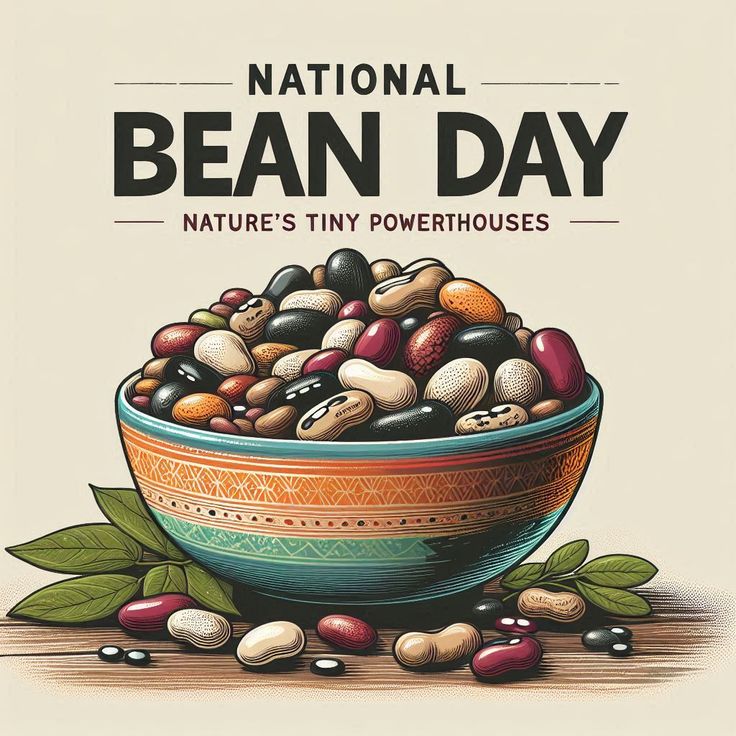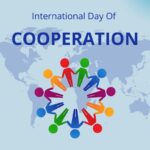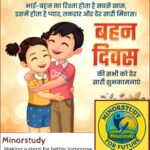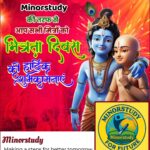🫘 National Eat Beans Day: History, Fascinating Facts, Timeline, FAQs, Significance, Celebrations, Wishing & Social Impact
Every year on July 3rd, people across the United States — and increasingly across the globe — celebrate National Eat Beans Day, a unique holiday that shines a spotlight on one of the most versatile, affordable, and nutritionally powerful foods: beans!
Beans have been a part of human diets for thousands of years, and they continue to play a critical role in health, food security, and cultural cuisine. Whether you love black beans in burritos, kidney beans in chili, or chickpeas in hummus — this day is your chance to indulge guilt-free while celebrating health, tradition, and sustainability.
Let’s dive into the full story behind this bean-loving day.
📜 History of National Eat Beans Day
While the exact origin of National Eat Beans Day is somewhat unclear, the holiday likely emerged as part of a public health and agricultural awareness effort in the early 2000s. It was likely promoted by nutrition advocates, legume associations, and food awareness movements to highlight the health benefits of beans and encourage their inclusion in daily meals.
Beans have been cultivated for more than 7,000 years, especially in Latin America, Africa, and Asia. Native Americans, particularly in North and Central America, grew beans alongside corn and squash in a triad known as the “Three Sisters”, an ingenious system that nurtured the soil and ensured a balanced diet.
In recent years, with rising concerns over obesity, diabetes, and climate change, beans have re-emerged as a superfood—an affordable, protein-rich, and eco-friendly source of nutrition.
🗓️ Timeline: From Ancient Crop to Superfood Celebration
| Year | Event |
|---|---|
| ~5000 BCE | First cultivated beans appear in Peru and Mexico. |
| 1492 CE | Beans introduced to Europe during the Columbian Exchange. |
| 1700s–1800s | Beans become a staple in American pioneer and military diets. |
| 20th century | Canned baked beans explode in popularity. |
| Early 2000s | National Eat Beans Day gains traction in the U.S. |
| Present Day | Promoted as a heart-healthy and environmentally friendly observance. |

💡 10 Fun and Nutritional Facts About Beans
Beans are a complete protein when paired with rice or corn.
They are cholesterol-free and rich in fiber, making them heart-friendly.
There are over 40,000 bean varieties grown worldwide.
Beans are rich in iron, potassium, magnesium, and folate.
Chickpeas and lentils are technically types of beans (legumes).
Beans improve soil health by fixing nitrogen.
They are among the lowest carbon footprint foods.
A cup of beans provides about 15 grams of protein.
Blue zones, regions with the longest-lived people, often feature beans in daily meals.
Beans are a great alternative to meat for vegetarians and vegans.
❓ Frequently Asked Questions (FAQs)
Q1: Why do we celebrate National Eat Beans Day?
A: To highlight the nutritional, environmental, and cultural significance of beans in our diets and raise awareness about their many benefits.
Q2: Are beans good for everyone?
A: Yes! Beans are generally healthy for most people, although some may need to manage gas or digestive issues with proper preparation.
Q3: How can I celebrate this day?
A: Cook a bean-based dish, try a new variety, share bean recipes on social media, or donate to a food bank that supports plant-based meals.
Q4: Are canned beans healthy?
A: Yes, but it’s best to choose low-sodium or no-salt-added versions and rinse them before cooking.
Q5: What are some common types of beans?
A: Kidney beans, black beans, navy beans, pinto beans, chickpeas (garbanzo), lentils, and soybeans are all popular choices.
🌍 The True Significance of National Eat Beans Day
🔹 1. Health Awareness
Beans are a powerhouse of nutrition. Promoting them helps combat chronic diseases like obesity, heart disease, and diabetes—especially in underprivileged communities.
🔹 2. Affordability
Beans are one of the cheapest protein sources available, making them crucial in the fight against hunger and malnutrition.
🔹 3. Sustainability
Beans are earth-friendly crops. They use less water, enrich the soil, and require fewer fertilizers, making them an important part of a sustainable diet.
🔹 4. Cultural Connection
Beans are central to many world cuisines—from Indian dal to Mexican frijoles, from Mediterranean hummus to African bean stews.
🔹 5. Food Justice
Promoting beans also supports plant-based diets and challenges unhealthy fast-food consumption patterns by offering simple, whole-food alternatives.
🎉 How Is It Celebrated?
Across the U.S. and increasingly in global food movements, the day is celebrated through:
🍲 Community cook-offs or potlucks featuring bean-based dishes.
📱 Social media challenges using hashtags like #EatBeansDay or #BeanLove.
📚 Educational content about the health benefits of legumes.
🌿 Workshops on sustainable farming and home gardening.
🛒 Retail promotions on canned and dried beans.
🧑🍳 Cooking classes teaching easy bean-based meals.
💌 Heartfelt Wishes for National Eat Beans Day
“🌱 Happy National Eat Beans Day! Here’s to health, happiness, and hearty meals!”
“🥣 A bowl of beans a day keeps the doctor away! Celebrate the humble bean today!”
“🎉 Let’s raise a toast (and a tortilla!) to our favorite legume — Happy Eat Beans Day!”
“💪 May your day be full of fiber, flavor, and kindness — enjoy those beans!”
“🥳 Celebrate the power of plants and people. Beans bring us together!”
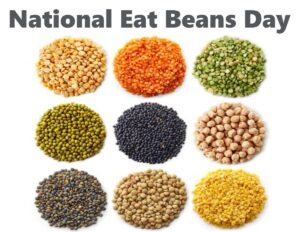
🧠 Key Observance Points
| Theme | Description |
|---|---|
| 📅 Date | July 3rd |
| 👥 Who Observes | Health advocates, foodies, plant-based eaters, chefs |
| 🍽️ How | Cooking, eating, educating, sharing |
| 🧑⚕️ Focus | Nutrition, sustainability, accessibility |
| 🌎 Global Relevance | Beans are staple foods in many cultures |
💬 Why It’s Important in Our Lives
👨👩👧👦 For Families:
Beans offer a budget-friendly, nutritious meal option, easy to include in lunchboxes or dinners.
💼 For Working Adults:
Prepping a simple bean salad or soup saves time and supports healthy eating on busy days.
🧓 For Seniors:
Rich in fiber and minerals, beans support digestion and bone health.
🧒 For Children:
When introduced early, beans can encourage healthy lifelong eating habits.
✅ Conclusion: Beans Are More Than Just a Meal — They’re a Movement
National Eat Beans Day is more than a fun observance — it’s a celebration of good health, sustainable living, and culinary diversity. From ancient civilizations to modern nutrition experts, beans have proven their place in history and on our plates.
As we face growing concerns around climate change, health disparities, and rising food costs, beans offer a simple yet powerful solution: they’re affordable, adaptable, delicious, and deeply nourishing.
So go ahead — make a bean chili, try a lentil curry, or just enjoy a hummus dip. Every bite is a step toward better health and a better planet.

